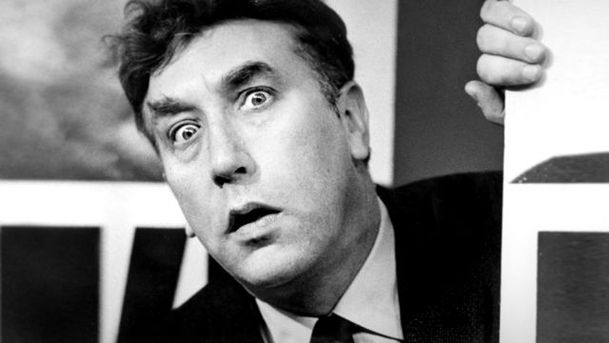Radio 2 Comedy Greats - Titter Ye Not: The Frankie Howerd Story

Clive Anderson looks at the life and work of Frankie Howerd, considering what made him so funny and the extent to which his "over the garden wall" style of performing revolutionised stand-up comedy in post-war Britain. In the late 1970s, when Clive was still working as a barrister, he also wrote for Radio 2's The Frankie Howerd Variety show. He remembers: "Heavy brows above and dark bags below, his eyes could flash enjoyment excitement or even aggression, but the set of his jowls was always gloomy. Like a naughty bloodhound endlessly seeking sympathy but instead providing endless entertainment he provoked fun because of the way he said things or even despite the way he said things." As well as Clive's personal recollections, the programme includes the last interview with Dennis Heymer, Howerd's partner of 40 years who died in May. Clive takes a tour of Wavering Down, the Somerset home Dennis shared with Howerd, which is now occasionally opened to the public. Heymer remembers how Howerd hated being gay: "He once said to Cilla Black, "I wish I wasn't gay", he just didn't want to be a homosexual. When I first met him and moved into the house, I was always hidden away. I was in another room whenever anybody came to talk to him, a producer or anybody in the profession or writers, even his sister. I didn't think anything about it. Eventually I started to go to the shows with him and meetings and he got over it." Other contributors include David Walliams who recently played Howerd in the BBC4 drama, Frankie Howerd: Rather You Than Me and idolised the comedian as a teenager; Griff Rhys Jones, who produced The Frankie Howerd Variety Show; Barry Cryer; writers Laurence Marks and Maurice Gran; producers Bill Lyon-Shaw and David Croft; actress Jeanne Mockford, who appeared alongside Howerd in Up Pompeii; his former agent Beryl Vertue, who recalls how she helped him revive his career in the early 60s; biographer Graham McCann; and producer Trevor McCallum, who talks about having the last ever conversation with Howerd.